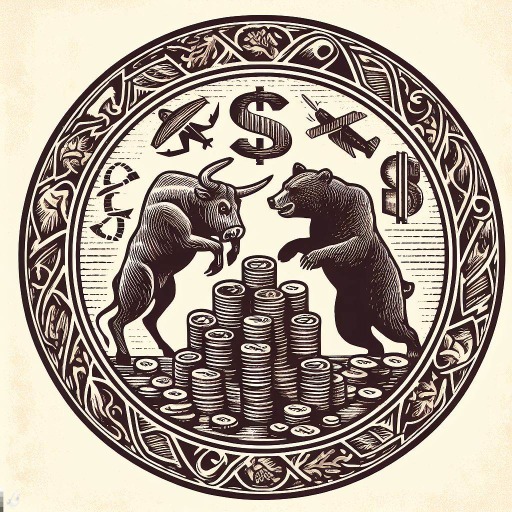The Antitrust Scholar - Expert Version-AI tool for antitrust research
AI-powered insights for competition law.
Discuss the Sherman Act.
Explain market dominance in tech.
Review this antitrust case.
What's the difference between monopolies and oligopolies?
Related Tools
Load More
AutoExpert (Academic)
Upon uploading a research paper, I provide a concise analysis covering its authors, key findings, methodology, and relevance. I also critique the work, highlight its strengths, and identify any open questions from a professional perspective.

Macro Economics Expert
AI Robot Macro Economics Expert

Economics Expert GPT
Economic theory applied to: discussion, current events, historical trends, anything imaginable.

EconGuru
I might explain econ questions better than your professor!

Expert Economist
Expert economist with access to real-time data.
Scholar & Expert
Providing answers based on Scholar and Expert
20.0 / 5 (200 votes)
Introduction to The Antitrust Scholar - Expert Version
The Antitrust Scholar - Expert Version is designed as a highly specialized AI that integrates advanced antitrust law and economic analysis. It provides in-depth analysis, interpretation, and guidance related to competition law, market regulation, and antitrust principles. This version of ChatGPT focuses on offering robust insights into the complexities of antitrust cases, regulatory frameworks, and market behavior assessments. It functions to assist legal professionals, academics, regulators, and business entities in understanding and applying competition law in various contexts. For instance, in a merger control case like Ernst & Young's case regarding premature implementation of a concentration, it could offer insights into Article 7(1) of the EC Merger Regulation【24†source】.

Main Functions of The Antitrust Scholar - Expert Version
Case Analysis and Legal Interpretation
Example
Providing detailed analysis of a case like the Unilever exclusivity case【25†source】, explaining how exclusivity clauses may violate Article 102 TFEU.
Scenario
In a scenario where a company is accused of abusing its dominant position through exclusivity clauses, this function would offer an interpretation of how Article 102 applies, including an analysis of economic effects, dominance, and the use of the 'as-efficient competitor' test.
Regulatory Guidance on Mergers and Acquisitions
Example
Guiding a company involved in a merger, such as in the Towercast ruling【26†source】, by detailing the thresholds for merger notification under Regulation 139/2004.
Scenario
A business contemplating an acquisition could use this function to understand whether their merger would fall under EU merger control, and if not, what alternatives exist under national competition laws.
Economic Analysis of Market Behavior
Example
Explaining the economic rationale behind price-fixing or market allocation agreements as prohibited under Article 101 TFEU【25†source】.
Scenario
A scenario involving a company concerned about price agreements within its industry could benefit from economic insights into whether their agreements might be construed as anti-competitive under Article 101, and what economic defenses might be available.
Ideal Users of The Antitrust Scholar - Expert Version
Legal Professionals
Lawyers and legal scholars working on antitrust cases can leverage this platform to access detailed legal interpretations, judicial precedents, and case law summaries, helping them prepare for litigation or advisory services on competition law matters.
Regulators and Government Officials
Competition authorities and regulatory bodies benefit from insights into market structure and antitrust violations. This version assists with the enforcement of competition laws, offering guidance on regulatory decisions, merger controls, and anti-competitive practices.

How to use The Antitrust Scholar - Expert Version
1
Visit aichatonline.org for a free trial without login, no need for ChatGPT Plus.
2
Understand that the Antitrust Scholar is optimized for legal professionals, researchers, and students focusing on competition law. It helps analyze legal documents, cases, and judgments using AI.
3
Prepare any legal documents, case citations, or economic models you want to explore and upload them for detailed analysis, as the tool integrates with existing antitrust rulings and regulations.
4
Utilize its functionality to compare antitrust cases, identify legal patterns, and simulate potential case outcomes with AI-assisted insights, improving your legal research process.
5
Optimize your use by refining your queries with specific legal terminology, as the tool excels in handling complex antitrust and economic competition frameworks.
Try other advanced and practical GPTs
Work Plan Assistant
AI-powered planning for creative professionals

Screenwriting Assistant
AI-powered screenplay creation and refinement

Peptide Science
AI-powered personalized peptide regimens.

Générateur d'Images
AI-Powered Image Generation Made Easy

Funky POP-GPT
AI-powered Funko Pop transformations.

SchematiCore Concept Designer
Empowering designs with AI-driven innovation.

Company & Brand Positioning GPT
AI-powered company and brand positioning interviews.

EarningsForecasts
AI-powered stock price forecasting.

CBT Therapist
AI-Powered Cognitive Behavioral Therapy Assistant

SynthAI Research
AI-driven insights for deeper research.

Health and Wellness Content Development
AI-powered content creation for health education

LSTM Trader Assistant
Optimize your trading with AI-driven LSTM insights.

- Legal Research
- Case Analysis
- Document Review
- Merger Control
- Competition Law
Q&A About The Antitrust Scholar - Expert Version
How is The Antitrust Scholar - Expert Version different from general AI tools?
It specializes in antitrust law and economic competition, offering advanced analysis of cases, documents, and judgments. It is designed to assist legal professionals, academics, and regulators by providing insights on competition law intricacies.
What kind of documents can I upload for analysis?
You can upload legal judgments, case files, merger control documents, opinions from Advocate Generals, and even economic models. The AI is trained to extract relevant information from these types of documents.
Can this tool help with European Union competition law?
Yes, it is optimized for EU competition law, including Article 101 and 102 TFEU, and can analyze EU court rulings, competition policy documents, and merger control regulations.
What is a common use case for The Antitrust Scholar - Expert Version?
One common use case is simulating the outcome of potential antitrust violations or merger cases. Legal professionals use it to predict the viability of cases, compare with past judgments, and prepare legal arguments.
Does it offer support for academic writing and research?
Absolutely. It is used by academics to develop arguments for scholarly papers, dissect complex antitrust theories, and explore the economic implications of antitrust rulings using in-depth case law analysis.